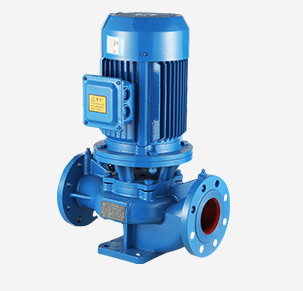English
- Afrikaans
- Albanian
- Amharic
- Arabic
- Armenian
- Azerbaijani
- Basque
- Belarusian
- Bengali
- Bosnian
- Bulgarian
- Catalan
- Cebuano
- Corsican
- Croatian
- Czech
- Danish
- Dutch
- English
- Esperanto
- Estonian
- Finnish
- French
- Frisian
- Galician
- Georgian
- German
- Greek
- Gujarati
- Haitian Creole
- hausa
- hawaiian
- Hebrew
- Hindi
- Miao
- Hungarian
- Icelandic
- igbo
- Indonesian
- irish
- Italian
- Japanese
- Javanese
- Kannada
- kazakh
- Khmer
- Rwandese
- Korean
- Kurdish
- Kyrgyz
- Lao
- Latin
- Latvian
- Lithuanian
- Luxembourgish
- Macedonian
- Malgashi
- Malay
- Malayalam
- Maltese
- Maori
- Marathi
- Mongolian
- Myanmar
- Nepali
- Norwegian
- Norwegian
- Occitan
- Pashto
- Persian
- Polish
- Portuguese
- Punjabi
- Romanian
- Russian
- Samoan
- Scottish Gaelic
- Serbian
- Sesotho
- Shona
- Sindhi
- Sinhala
- Slovak
- Slovenian
- Somali
- Spanish
- Sundanese
- Swahili
- Swedish
- Tagalog
- Tajik
- Tamil
- Tatar
- Telugu
- Thai
- Turkish
- Turkmen
- Ukrainian
- Urdu
- Uighur
- Uzbek
- Vietnamese
- Welsh
- Bantu
- Yiddish
- Yoruba
- Zulu
Telephone: +86 13120555503
Email: frank@cypump.com
Nov . 15, 2024 15:31 Back to list
screw pump for slurry
Understanding Screw Pumps for Slurry Applications
Screw pumps have gained significant popularity in various industrial sectors due to their efficiency and versatility, especially when it comes to handling challenging materials like slurries. A slurry is a mixture of solid particles and liquid, often viscous, which presents unique challenges when it comes to pumping, making the selection of the right pump critical.
What is a Screw Pump?
A screw pump is a type of positive displacement pump that operates using one or more helical screws to move fluids. The design typically features a rotating screw mechanism that moves the fluid through a cavity, effectively drawing in the slurry and pushing it through the discharge outlet. This pump type is renowned for its ability to handle a wide range of viscosities and solid contents, making it particularly suitable for transporting slurries.
Advantages of Screw Pumps for Slurry Handling
1. Efficiency Screw pumps are known for their high efficiency in transferring slurries compared to traditional centrifugal pumps. The positive displacement nature of the screw pump ensures that the flow rate is consistent, which is particularly important for applications involving slurries where variations in flow can significantly impact process efficiency.
2. Gentle Handling of Solids One of the critical aspects of pumping slurries is preserving the integrity of the solid particles within the mixture. Screw pumps excel in this area as the design minimizes shear and turbulence, reducing the risk of solid degradation during transport. This characteristic is essential in industries such as mining, where the preservation of the ore’s quality is paramount.
3. Versatility Screw pumps can handle a wide range of slurry types, from thin slurries with low solid content to highly viscous mixtures with larger particles. This adaptability makes them ideal for various applications, including wastewater treatment, chemical processing, and food production.
screw pump for slurry

4. Self-Priming Capabilities Many screw pumps possess self-priming capabilities, allowing them to be placed above the slurry source without the need for complicated suction piping. This feature simplifies installation and can lead to cost savings in terms of both time and materials.
5. Low Maintenance Requirements Due to their robust design, screw pumps require less maintenance compared to other pump types. This reliability leads to reduced downtime and lower operational costs, which are crucial factors in industrial environments where efficiency and productivity are vital.
Applications of Screw Pumps in Slurry Transport
Screw pumps are widely used across various industries for transporting slurries. In the mining sector, they are essential for moving ore slurry from the processing facilities to the storage or transportation areas. In the paper and pulp industry, screw pumps are employed to handle wood fiber slurries, ensuring smooth transportation with minimal damage to the fibers.
Additionally, in wastewater treatment plants, screw pumps are used to move sludge effectively from one stage of the treatment process to another. Their ability to handle abrasive materials and high levels of solids makes them a reliable choice in these applications.
Conclusion
In conclusion, screw pumps represent a robust solution for slurry handling in multiple industries. Their efficiency, gentle solid handling, versatility, self-priming capabilities, and low maintenance requirements make them an indispensable tool for anyone dealing with slurry transport. As industries continue to seek ways to improve efficiency and reduce costs, the reliance on innovative pumping technologies like screw pumps is likely to increase, solidifying their role in modern industrial processes. When faced with the task of transporting slurries, choosing a screw pump can lead to enhanced operations and peace of mind.
-
ISG Series Vertical Pipeline Pump - Chi Yuan Pumps Co., LTD.
NewsJul.30,2025
-
ISG Series Vertical Pipeline Pump - Chi Yuan Pumps Co., LTD.|energy-efficient fluid handling&industrial durability
NewsJul.30,2025
-
ISG Series Vertical Pipeline Pump - Chi Yuan Pumps | Advanced Engineering&Industrial Efficiency
NewsJul.30,2025
-
ISG Series Pipeline Pump - Chi Yuan Pumps | High Efficiency, Energy Saving
NewsJul.30,2025
-
ISG Series Vertical Pipeline Pump-Chi Yuan Pumps|High Efficiency&Reliable Performance
NewsJul.29,2025
-
ISG Series Vertical Pipeline Pump|High Efficiency&Low Noise
NewsJul.29,2025










